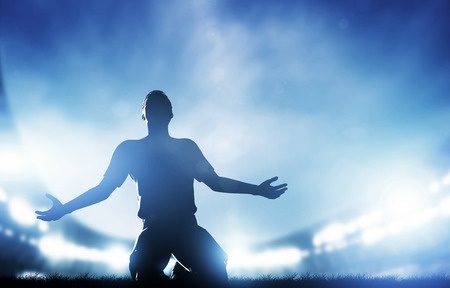Athletes who seek an edge that will allow them to maximize performance and increase efficiency during competition need to focus on mental toughness training. Not only will this assist them on the field or court, mental toughness training has benefits across the boundaries of everyday life.
Oftentimes, at a competitive level, kids have to deal with fairly intense scrutiny, a great deal of pressure and much higher expectations than recreational sports. Sports psychologists have outlined many elements within the mental game that benefit from mental toughness training, including:
Coping Skills — or learning to manage your internal dialogue: Athletes often have the same expectations of themselves as parents and coaches, and can get consumed by their own scrutiny. Learning to manage and overcome mistakes and misfortunes are essential to a strong mental game. This can include positive affirmations to overcome negative thoughts.
Staying Present/Mindfulness: An athlete’s ability to stay in the moment versus allowing to be overcome by situations and thoughts affecting stress levels is imperative. Athletes need to learn to let go of a poor play or mistake, and remember that to over-process mistakes generally means more mistakes. Learning to focus on what they can control instead of wins, losses, mistakes and frustrations are the keys to more effective performances. Learning to use the acronym WIN. (What’s Important Now) is a part of mindfulness training.
Flow State: Reaching a state of flow occurs when the athlete is totally focused on each moment of the game, and when the crowd noise disappears. This is a mental state of playing achieved through mindfulness or learning to stay focused on the game during pressure situations.
Breathing/Breath Work: Athletes frequently stop or interrupt their normal flow of breathing when stressed, pressured or frustrated. Athletes need to learn to take deep breaths and exhale deeply from their diaphragm as an aid to their other coping operations.
Visualization: The beauty of visualization is that the brain believes the athlete is in the actual situation, and responds accordingly when the athlete visualizes or uses mental imagery. The brain actually sends signals to the body parts on a subcortical level that the athlete imagines using. Within the I-Imagine visualization modules, players learn to use coping skills, mindfulness skills, breathing work and train to recreate flow states during performances, which ultimately prepares them for the actual competition.
We’ve all had the opportunity to witness a player or a team fall apart under the intense pressure of competition. We’ve all probably said that a player needs to “get their head in the game.” However, we haven’t given players the tools to overcome these normal struggles. I compare the mental game in sports to parenting. There simply isn’t a handbook, and we often go into parenting with not nearly enough tools.
I-Imagine offers a tool chest with all of the mental toughness elements encapsulated into audio visualization modules, but there are no quick fixes. Just as with physical training, an athlete will need to commit to the effort, but over time, similar to developing physical skills, the athlete will learn mental toughness. All you need are headphones, a mobile device or computer and 15 minutes three to five times a week.
Ready to train your brain?
Additional mental toughness posts:

